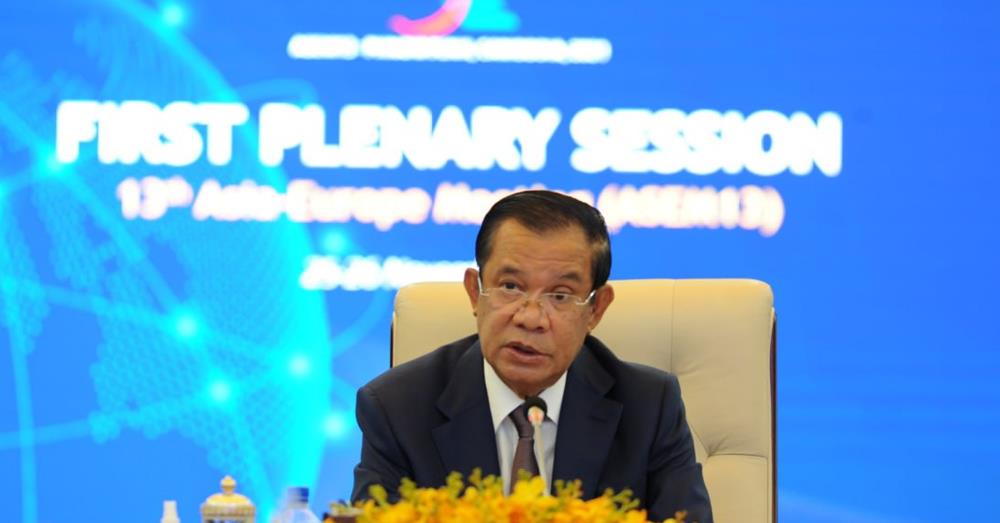Phnom Penh (FN), Nov. 25 – Cambodian prime minister Hun Sen reaffirmed the importance of the Asia-Europe partnership and cooperation in addressing regional and global issues of common concerns, speaking at the 13th Asia-Europe Meeting (ASEM13) held on Thursday via videoconference.
In fact, in the post COVID19 crisis world, the leaders need to further reinforce our Asia-Europe partnership to maintain a strong multilateralism that will bring about a global growth that is not only “Sustainable” but can also be “Shared”, the premier underlined.
“Its strength lies in its core principles of informality, flexibility, and mutual respect in the spirit of consensus and equal partnership. I believe that, in the current situation, we need these principles more than ever, as we are facing a myriad of challenges that require our joint efforts and responses.”
Samdech continued that, ASEM-13 has set its objectives based on the principles of shared growth, sustainable development, and rules-based multilateralism. As an important multilateral platform linking Asia and Europe, ASEM is an essential and strong global force. In this spirit, ASEM’s cooperation and partnership for a solid and effective multilateralism and a rules-based international order should act as its guiding spirit.
“As ASEM is moving towards its next decade of its existence, we all have a shared responsibility to ensure that ASEM continues to be an essential and robust inter-regional platform that can bring about great benefits for its people and can make an even greater contribution to peace, stability, prosperity, and development of the world,” the premier added.
Today’s ASEM Summit is a timely opportunity for leaders of ASEM Partners to reaffirm the importance of the Asia-Europe partnership and cooperation in addressing regional and global issues of common concerns. In this regards, the main goals of the summit are:
1. Deepening inter-regional connectivity for sustainable and inclusive development and shared growth;
2. Promoting inter-regional partnership for global governance;
3. Enhancing the effectiveness of a rules-based multilateral system;
4. Harnessing innovation, digital connectivity, and the Industrial Revolution 4.0;
5. Strengthening ASEM’s visibility and relevance; and
6. Addressing multi-sectoral issues such as climate change, poverty, women empowerment, as well as other trans-national challenges.
=FRESH NEWS













